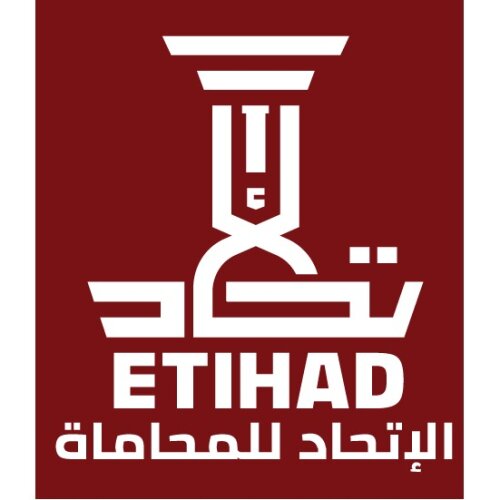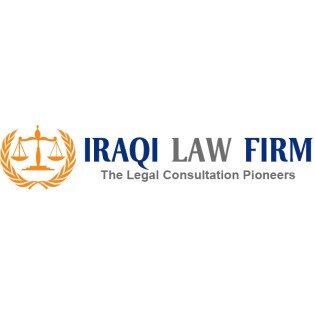Best Water Law Lawyers in Baghdad
Share your needs with us, get contacted by law firms.
Free. Takes 2 min.
List of the best lawyers in Baghdad, Iraq
About Water Law in Baghdad, Iraq
Water Law in Baghdad, Iraq is a specialized legal field focused on the use, management, protection, and distribution of water resources. Given Baghdad's historical reliance on the Tigris River and the city’s complex infrastructure, water law addresses issues relating to irrigation, domestic water use, pollution, water rights, and government responsibilities. Water Law touches upon regulations determined by both national Iraqi law and local ordinances, as well as customary practices built over centuries. Legal matters in this field can range from disputes over water access to compliance with environmental protections set by governmental bodies.
Why You May Need a Lawyer
Water Law matters in Baghdad can be complex for individuals, businesses, farmers, and organizations. You may need a lawyer if you:
- Are facing disputes with neighbors, businesses, or the government over water access or usage rights.
- Require permits for water extraction or agricultural irrigation.
- Operate a business that may impact water quality or quantities, such as manufacturing or agriculture.
- Need guidance on compliance with environmental or municipal water regulations.
- Are affected by contamination, pollution, or unauthorized use of water resources.
- Require legal defense against fines or penalties related to alleged water violations.
- Want to challenge government decisions relating to water infrastructure or distribution.
A lawyer specializing in Water Law can clarify your rights and obligations, help resolve disputes, and represent your interests in negotiations or legal proceedings.
Local Laws Overview
Baghdad’s Water Law framework is influenced by Iraq’s national legislation and local regulations. Key legal aspects include:
- Water Rights: Water from rivers and other surface sources is considered a public resource, with access governed by a permit system managed by the Ministry of Water Resources and local authorities.
- Permits and Licensing: Extracting, diverting, or significantly using water for industrial or agricultural purposes requires official permits. Unauthorized use can result in fines and cessation orders.
- Water Quality: Laws set standards for the disposal of waste and chemicals into water bodies, enforced by environmental authorities to prevent pollution and protect public health.
- Infrastructure and Maintenance: Responsibility for maintaining public water pipes, channels, and facilities is divided between municipal departments and water users based on use and location.
- Dispute Resolution: Disputes over water access or pollution are typically addressed through negotiation, mediation, or formal complaint to administrative authorities or courts.
- International Agreements: Due to Iraq’s reliance on transboundary rivers, some laws reflect international agreements or cooperation, especially regarding the Tigris and Euphrates.
Frequently Asked Questions
What is Water Law and why is it important in Baghdad?
Water Law governs the rights, responsibilities, and management of water resources. In Baghdad, it is crucial due to reliance on water for domestic use, agriculture, industry, and the prevention of pollution.
Who controls water distribution in Baghdad?
Water distribution is managed by Baghdad’s local water authority under oversight from the national Ministry of Water Resources, with specific departments handling permits, maintenance, and quality oversight.
Do I need a permit to use water for farming or a business?
Yes. Any significant extraction or diversion of water, especially for farming, livestock, or industrial purposes, generally requires a legal permit from the relevant authorities.
What happens if someone pollutes a river or water source?
Polluting public water sources is a legal violation. Offenders may face investigation, fines, cleanup orders, and potentially criminal charges, depending on the severity and results of the pollution.
Can I drill a private well on my property?
Drilling a private well often requires permission from local authorities. There are regulations to ensure that wells do not harm communal water sources or violate usage quotas.
How can I resolve a dispute over water usage with my neighbor?
Many minor disputes are resolved through negotiation. If that does not work, you can file a complaint with local water authorities or, if necessary, pursue legal action in civil court.
Are there restrictions on water use during shortages?
Yes. Municipal or national authorities may impose temporary restrictions, prioritize domestic or public health needs, and enforce rationing during droughts or shortages.
What should I do if government infrastructure damages my property?
You should document the incident and report it to the relevant municipal department. If unresolved, you may seek legal recourse for compensation through administrative channels or the courts.
How are water pollution issues monitored?
Local environmental departments regularly monitor water bodies and investigate complaints. Certain industries are also required to report water use and effluents to regulatory agencies.
What laws protect me from losing access to clean water?
Both national and local Iraqi laws protect the right to safe, clean water for all residents. Unlawful denial or contamination is subject to legal action, and authorities are responsible for enforcement.
Additional Resources
- Ministry of Water Resources: The main regulatory body for water management, permits, and policy.
- Baghdad Water Directorate: Handles local water supply, infrastructure, and public services.
- Ministry of Environment: Oversees water pollution and environmental regulations.
- Baghdad Municipality: Responsible for certain urban water and sanitation services.
- Legal Aid Organizations: Some NGOs and legal clinics provide free or low-cost legal assistance for water-related issues.
Next Steps
If you are facing an issue related to Water Law in Baghdad, consider the following steps:
- Gather all relevant documents, such as permits, correspondence, and evidence of the problem.
- Contact the relevant government department or municipal office to file a report or complaint if appropriate.
- Consult with a lawyer specializing in Water Law to review your rights, possible actions, and procedural steps.
- If needed, pursue negotiations, mediation, or formal legal proceedings to resolve disputes or safeguard your interests.
Acting promptly and consulting experienced professionals can help you navigate the complex landscape of Water Law in Baghdad and protect your rights and interests.
Lawzana helps you find the best lawyers and law firms in Baghdad through a curated and pre-screened list of qualified legal professionals. Our platform offers rankings and detailed profiles of attorneys and law firms, allowing you to compare based on practice areas, including Water Law, experience, and client feedback.
Each profile includes a description of the firm's areas of practice, client reviews, team members and partners, year of establishment, spoken languages, office locations, contact information, social media presence, and any published articles or resources. Most firms on our platform speak English and are experienced in both local and international legal matters.
Get a quote from top-rated law firms in Baghdad, Iraq — quickly, securely, and without unnecessary hassle.
Disclaimer:
The information provided on this page is for general informational purposes only and does not constitute legal advice. While we strive to ensure the accuracy and relevance of the content, legal information may change over time, and interpretations of the law can vary. You should always consult with a qualified legal professional for advice specific to your situation.
We disclaim all liability for actions taken or not taken based on the content of this page. If you believe any information is incorrect or outdated, please contact us, and we will review and update it where appropriate.















